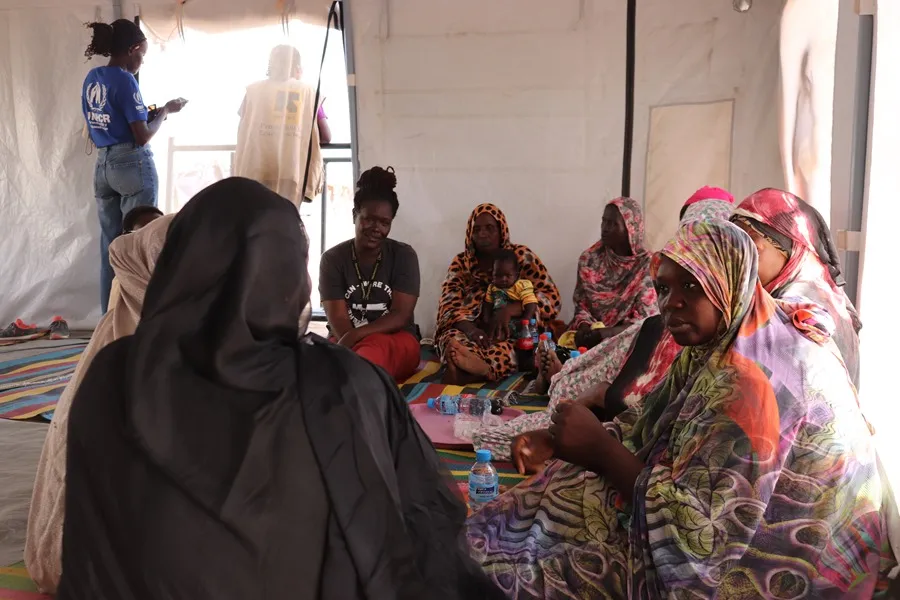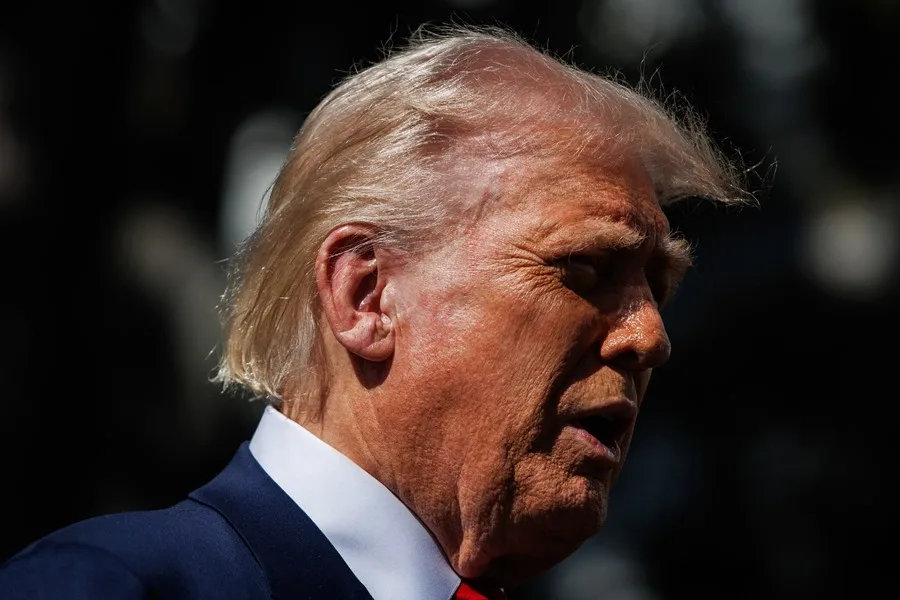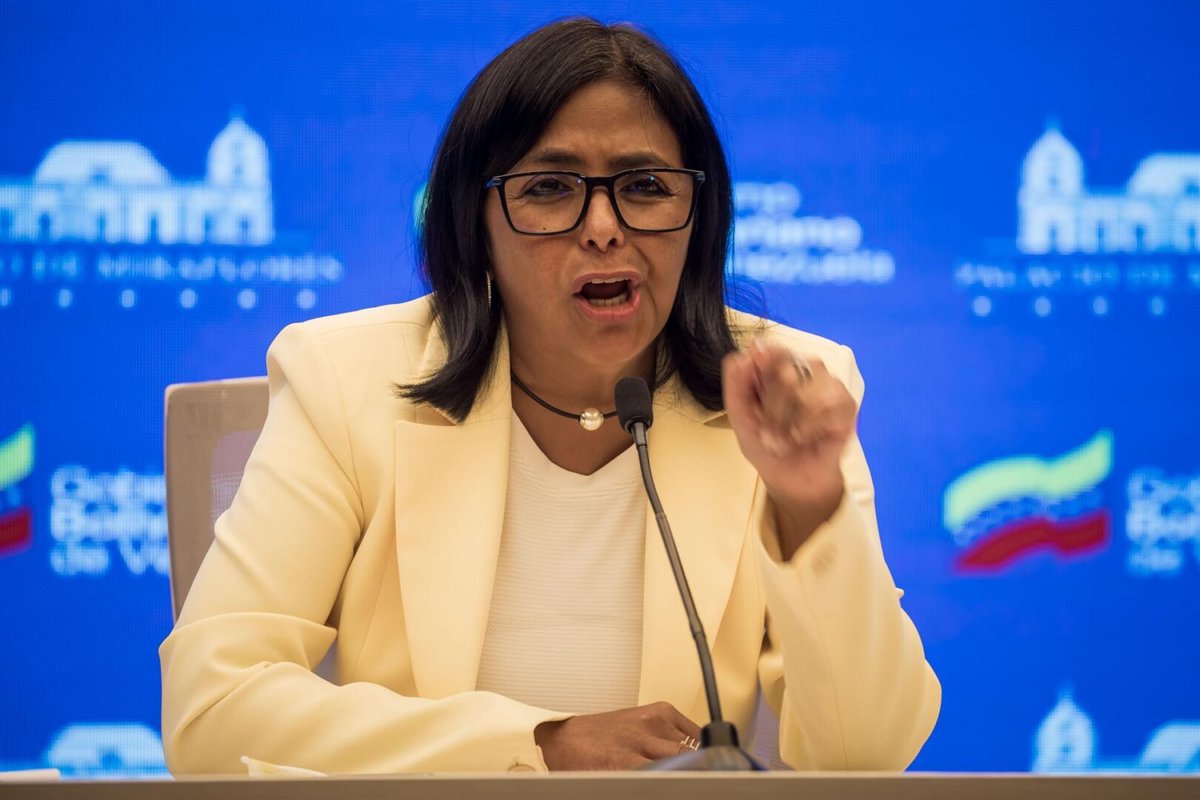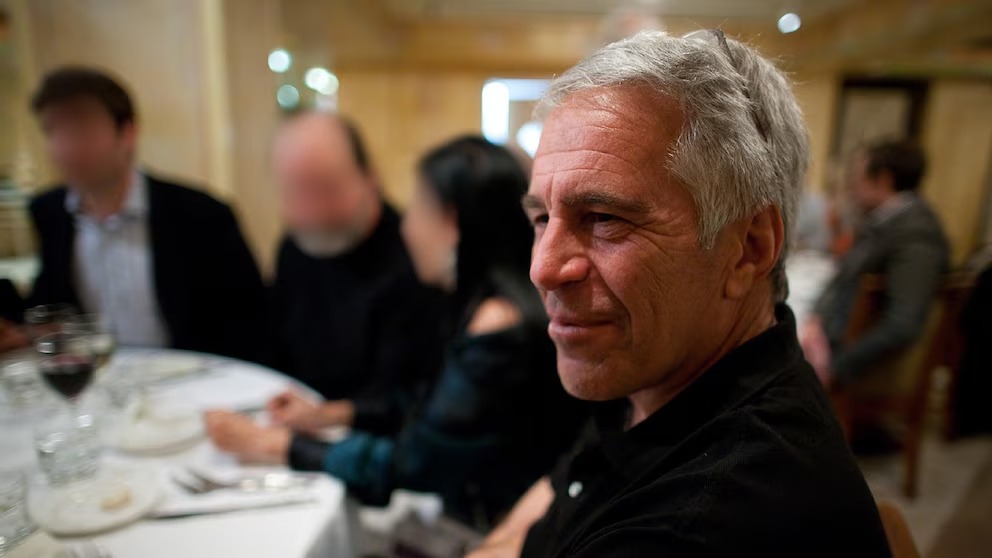International
Refugees from the Sudan war rebuild their lives between fear and hope

Every afternoon, a group of women fleeing the conflict in Sudan gather in a tent in the transit center of Renk, a border town in the territory of South Sudan, to participate in a workshop on gender violence, where they share their testimony, receive the attention of professionals and begin to heal the wounds that the war left them in body and mind.
Some of the attendees are South Sudanese returnees; others, Sudanese refugees, and all try to overcome the fear, suffering and violence, in many sexual cases, that they lived during their escape from the war that broke out more than a year ago between the Army of Sudan and the paramilitary group Rapid Support Forces (FAR).
They sit in a circle and listen in silence to one of the women who decides to explain her story. Some nod, a tear runs down the cheek of another who plays with the hem of her colorful dress, while a woman decides to add her experience.
The safety and well-being of their children was the first thing, despite being paralyzed by fear. Salma, a fictitious name, tells EFE that his three children were unable to sleep due to the fear of bombs and gunfire. Now they sleep a little better, but they are still restless.
“We fled our home in Khartoum (capital of Sudan) around midnight. No car. We walked in silence to another town and another and another,” Salma says about the nightmare of leaving his house behind and crossing the Joda border crossing to apply for refuge in South Sudan.
He doesn’t talk about her. She doesn’t feel prepared. She explains that she lost her husband along the way, without giving details, and is grateful because the little ones can go to a kind of nursery in the center, but regrets that the elderly cannot continue studying.
Dunia, also a pseudonym, feels lucky to have her husband, but shares her concern for minors. “I want my children to be able to go back to school. We want them to open a school here, we don’t want to go to the Mabán refugee camp,” he explains.
After spending half a month in the Renk transit center, the refugees are transferred to the Mabán camp, a nearby location, but neither Dunia nor other women want to: “The facilities are not good and they rape girls and women when they move away to the latrines or to look for firewood in the outskirts,” he says.
Sexual violence against women is a common weapon in all wars. It’s not easy to talk about this episode in their lives. None of them do it. Shame and social and community rejection weighs, and they do not want to reopen wounds that are still healing.
According to a report issued in February by the Office of the United Nations High Commissioner for Human Rights, “at least 118 people were exposed to sexual violence, including rape, gang rape and attempted rape,” while Sudanese human rights organizations raise the figure to more than 370 in just over a year of war in the African country.
However, these figures are only the tip of the iceberg. The director of the government Department for the Fight against Violence against Women and Children, Salima Ishaq, told EFE that only 2% of the victims of sexual violence have dared to report it to the authorities, while the rest avoid it because of “social restrictions” or “for fear of reprisals.”
“The estimates indicate that the complaints we receive do not exceed 2% of the actual incidents of sexual violence, which means that the total number could reach 7,000 cases of sexual violence,” he added.
Sexual violence has another retaliation: unwanted pregnancies. The Sudanese authorities announced in mid-May that they had taken in a dozen babies abandoned by women raped by FAR fighters, although they did not disclose possible cases resulting from alleged rapes committed by members of the Army.
Yamila was robbed of everything during her escape. Some armed men took her husband and demanded a ransom. He doesn’t have money or know where he is, not even if he’s still alive. “I want him to come back. I’ve thought about killing myself because my children ask me about him and I don’t know what to answer, but I have to move on for them,” he says in tears.
“They are the future. I want you to study and go to university. They are sad because they don’t go to class. One wants to be a teacher, the other wants to be a doctor,” he adds. Despite everything, he appreciates the company of the other women because they give him strength.
It agrees with her Nouran, who recognizes the positive effect that this therapy group has among the participants: “We talk about our problems and look for solutions. Together we are stronger and we help and advise each other, we talk about the children…”
The session ends, but they all feel a little lighter and more lively. They think that when they say something out loud, they take a weight off their back. Tomorrow they will return and little by little they will reinforce this network of women with which they are rebuilding their lives with a shared desire: that the war ends to return to their home, Sudan.
International
HRW Warns Trump’s Influence Has Weakened Human Rights in Latin America

Human Rights Watch (HRW) warned that the political influence and rhetoric of U.S. President Donald Trump have contributed to a deterioration of human rights conditions across Latin America and the Caribbean. In its World Report 2026, the organization stated that several governments in the region have committed abuses against migrants and citizens, or have used U.S. policies as justification to impose harsher repressive measures.
During the first year of Trump’s new term, HRW observed that multiple countries violated the rights of foreign nationals under direct pressure from Washington. Other governments deepened security strategies based on militarization, mass detentions and excessive use of force, according to the report.
“The impact of the Trump administration has undoubtedly been negative in Latin America and the Caribbean,” said Juanita Goebertus, HRW’s Americas director. However, she emphasized that “governments in the region remain responsible for defending democracy and fundamental rights, regardless of who is in power in Washington.”
HRW also reported that the United States significantly reduced cooperation funding for human rights organizations and independent media. At the same time, countries such as El Salvador, Peru and Ecuador passed laws allowing the arbitrary closure of civil society organizations and media outlets, weakening democratic systems and institutional checks and balances.
The organization further criticized what it described as a “double standard” in U.S. foreign policy, which condemns human rights violations in Venezuela, Cuba and Nicaragua while overlooking serious abuses committed by allies such as El Salvador, Peru and Ecuador. The report also included criticism of the U.S. military attack against Venezuela in early 2026, warning that it could strengthen Nicolás Maduro’s regime and respond primarily to U.S. political and commercial interests.
International
Delcy Rodríguez Takes Control of Chavismo as Venezuela Enters a U.S.-Supervised Transition

With short speeches and an academic image, Delcy Rodríguez—the woman sworn in as Venezuela’s acting president—has taken the helm of Chavismo at a critical moment, as the movement seeks to ensure its survival while the country enters a phase of change overseen by the United States, putting the foundations of the revolution to the test.
Following the military operation on January 3 that resulted in the capture of Nicolás Maduro, the Chavista leadership moved quickly to fill the power vacuum and confront the new political dynamic from within the state apparatus. In this context, Rodríguez has emerged as the central figure tasked with steering the ruling movement through an uncertain transition.
Although she has held telephone conversations with U.S. President Donald Trump and Secretary of State Marco Rubio, Rodríguez has publicly insisted on Venezuela’s independence and has sharply criticized an opposition that currently lacks meaningful influence within the political landscape.
“Enough of Washington’s orders over Venezuelan politicians. Venezuelan politics must be the one to resolve our differences and internal conflicts,” Rodríguez said on January 25, while defending her proposal for a “political dialogue” with both “like-minded” and “divergent” sectors, which she had presented two days earlier.
International
Epstein Denies Being ‘the Devil’ in Newly Released Video Interview

Jeffrey Epstein claims he was the least dangerous type of sex offender and denied being “the devil” in a video interview included in the latest batch of documents released over the weekend by the U.S. Department of Justice.
The roughly two-hour interview was conducted by Steve Bannon, a former adviser to U.S. President Donald Trump, and appears to have been recorded at the late financier’s New York residence on an unknown date.
Epstein died by suicide in 2019 while in jail awaiting trial on sex trafficking charges involving minors. Since December, the U.S. government has released millions of documents related to the case under transparency laws.
“Do you think you’re the devil incarnate?” Bannon asks Epstein in the video interview revealed in the latest release.
“No, but I do have a good mirror,” Epstein replies with a smile, wearing a black shirt and glasses. When pressed again, he adds, “I don’t know. Why would you say that?”
Epstein, who pleaded guilty in 2008 to soliciting a minor for prostitution, also appears to downplay the seriousness of his conviction.
He objects when Bannon refers to him as a “Level Three sexual predator,” a classification in the United States indicating a very serious threat to public safety.
“No, I’m the lowest,” Epstein says.
“But still an offender,” Bannon responds.
“Yes,” Epstein replies.
The exchange comes after Bannon asks Epstein whether he considers his wealth to be “dirty,” suggesting it was earned by advising “the worst people in the world.”
Epstein insists that he made his money legally, while acknowledging that “ethics is always a complicated issue.”
He claims he donated money to help eradicate polio in Pakistan and India, apparently in an attempt to justify the origins of his fortune.
The documents also show that Bannon maintained regular correspondence with Epstein, who offered to help the far-right political figure spread his conservative ideology in Europe.
Since Trump took office in January 2025, U.S. authorities have released millions of pages related to Epstein, along with photos and videos.
These materials have shed new light on Epstein’s ties to high-profile business executives such as Microsoft co-founder Bill Gates, celebrities including filmmaker Woody Allen, and academics and political figures, among them Trump and former President Bill Clinton.
-

 International1 day ago
International1 day agoMexico to Send Humanitarian Aid to Cuba Amid U.S. Threats Over Oil Shipments
-

 International1 day ago
International1 day agoSpain Seeks to Ban Social Media Access for Children Under 16
-

 International1 day ago
International1 day agoEpstein Denies Being ‘the Devil’ in Newly Released Video Interview
-

 International1 day ago
International1 day agoPetro Resumes Extraditions, Sends Top Criminal to U.S. Before White House Talks
-

 International1 day ago
International1 day agoHypothermia Linked to Most Deaths During New York’s Recent Cold Spell
-

 Central America3 days ago
Central America3 days agoCosta Rica Goes to the Polls as Voters Choose Continuity or Change
-

 International1 day ago
International1 day agoMexico Arrests Suspect in Shooting of Sinaloa Lawmakers
-

 International5 hours ago
International5 hours agoDelcy Rodríguez Takes Control of Chavismo as Venezuela Enters a U.S.-Supervised Transition
-

 Central America1 day ago
Central America1 day agoLaura Fernández Says She Will ‘Never’ Allow Authoritarianism in Costa Rica
-

 International5 hours ago
International5 hours agoHRW Warns Trump’s Influence Has Weakened Human Rights in Latin America
-

 International1 day ago
International1 day agoNFL Investigating Emails Linking Giants Executive to Jeffrey Epstein


























